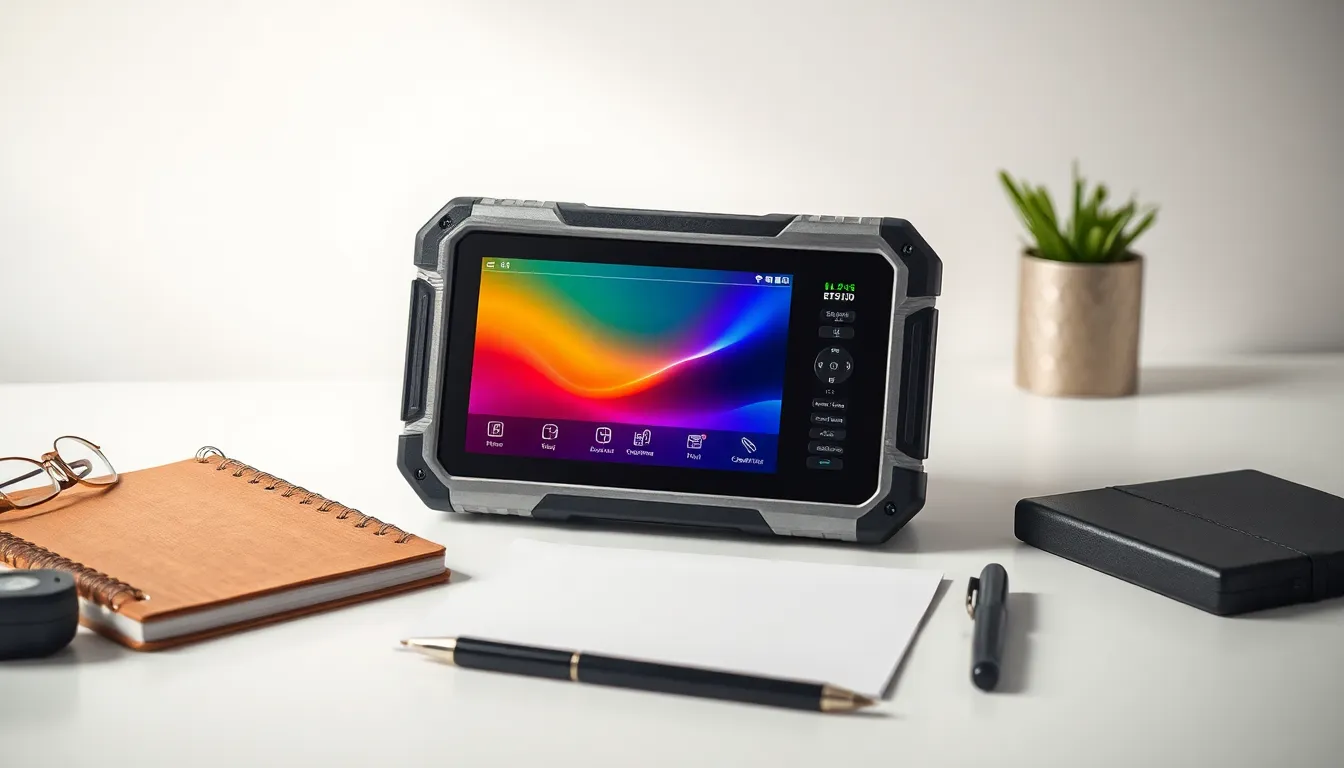In the high-stakes game of hiring, finding the right candidate can feel like searching for a needle in a haystack—blindfolded. Enter the interview scorecard, the trusty sidekick every hiring manager didn’t know they needed. This handy tool transforms chaotic interviews into a streamlined process, making it easier to compare candidates without losing your sanity (or your sense of humor).
Table of Contents
ToggleWhat Is an Interview Scorecard?
An interview scorecard serves as a detailed assessment tool for evaluating job candidates. It outlines key competencies, skills, and attributes relevant to the role being filled. Hiring managers use it to systematically rate candidates across various criteria during the interview process.
A well-designed interview scorecard includes a range of categories, such as communication skills, technical abilities, cultural fit, and problem-solving capabilities. Each category features specific questions with defined rating scales, typically ranging from one to five. This scoring framework simplifies candidate comparisons, providing clarity on their strengths and weaknesses.
Employers benefit from utilizing scorecards, as they reduce biases that can arise during interviews. Structured evaluations promote objectivity and consistency, allowing for better hiring decisions. Moreover, a shared scorecard can facilitate collaboration among interviewers, ensuring everyone is aligned on evaluation standards.
Data suggests organizations that implement interview scorecards experience improved hiring outcomes. They identify the best-fitting candidates more effectively, resulting in higher employee retention and satisfaction rates. Standardizing the interview process ultimately leads to a more efficient hiring experience for both candidates and hiring teams.
The interview scorecard stands out as an essential tool in modern recruitment. Firms leveraging this method gain a competitive edge in attracting and selecting top talent, streamlining their hiring efforts.
Benefits of Using an Interview Scorecard
Utilizing an interview scorecard enhances the recruitment process by offering numerous advantages. Organizations benefit significantly in candidate evaluation and hiring consistency.
Improved Candidate Evaluation
An interview scorecard promotes thorough candidate evaluation by providing a structured framework. Each candidate receives scores based on specific competencies, such as technical skills and communication abilities. Interviewers can leverage defined rating scales to assess performance objectively. Consistent criteria minimize subjective opinions, delivering a fair assessment environment. Improved clarity allows hiring teams to identify the strongest candidates while focusing on critical skills. Data shows companies using scorecards report higher alignment with role expectations, leading to better job performance.
Enhanced Hiring Consistency
Employing an interview scorecard fosters consistency across the hiring process. Standardized evaluation criteria ensure interviewers assess each candidate uniformly. This consistency reduces variability in scoring and enhances the overall decision-making process. Each team member references the same scorecard during interviews, aligning expectations around essential competencies. Hiring managers become better equipped to compare candidates side by side. Organizations that prioritize consistency experience improved collaboration among interviewers, leading to better collective decisions. Consequently, companies utilizing scorecards often achieve higher employee satisfaction and retention rates.
How to Create an Effective Interview Scorecard
Creating an effective interview scorecard relies on clearly defining candidate qualifications and establishing scoring criteria.
Define Essential Candidate Criteria
Outline the specific competencies required for the role. Identify skills such as communication, teamwork, and problem-solving. Include attributes that align with the company culture. For instance, adaptable candidates may thrive in dynamic environments. Engage hiring managers and team members during this process to create a comprehensive list. Consensus on what constitutes essential qualities promotes targeted evaluations. Reflect on job descriptions to ensure alignment between qualifications and organizational needs. Encourage input from diverse team members to minimize bias in defining these criteria.
Develop Scoring Rubrics
Establish clear scoring rubrics for each criterion. Assign numerical values for evaluations, such as 1 to 5, where 1 indicates poor performance and 5 excellent performance. Describe what each score means for consistent assessments across interviewers. For example, a score of 3 may represent satisfactory performance meeting basic expectations. Prepare detailed descriptions of potential candidate responses to guide interviewers during scoring. Incorporate specific questions related to each criterion to elicit relevant insights. This structured scoring framework ensures consistent evaluations among interviewers, promoting fairness and accuracy in candidate assessments.
Tips for Using the Interview Scorecard During Interviews
Using the interview scorecard effectively enhances the hiring process. Proper strategies can maximize its benefits for identifying suitable candidates.
Training Interviewers
Training interviewers on the scorecard’s use is essential. Clear instructions ensure everyone understands how to evaluate candidates objectively. Engage them in mock interviews that allow practice with the scorecard. Emphasize consistent application of scoring criteria. Provide examples of strong and weak candidate responses to clarify expectations. Encouraging questions fosters a better grasp of the scorecard’s logic. Regular training sessions reinforce best practices, leading to improved candidate evaluation.
Gathering Feedback
Gathering feedback from interviewers after using the scorecard contributes to continuous improvement. Encourage open discussions about their experiences with the scorecard. Collect insights on scoring clarity, question effectiveness, and candidate interactions. Utilize anonymous surveys for honest feedback. Analyze the feedback to identify areas for adjustment, enhancing the scorecard’s relevance over time. Implementing suggested changes helps address any challenges faced in evaluating candidates. Consistent monitoring and adaptation ensure the scorecard remains a valuable tool for the hiring process.
Utilizing an interview scorecard transforms the hiring landscape by promoting a structured and objective approach to candidate evaluation. This tool not only streamlines the interview process but also fosters collaboration among team members. By reducing biases and ensuring consistency in assessments, organizations can make more informed hiring decisions.
The implementation of a well-crafted scorecard leads to improved retention and satisfaction rates, ultimately benefiting the entire organization. Regular training and feedback ensure that the scorecard remains effective and relevant, making it an indispensable asset in the quest for top talent. Embracing this method can significantly enhance the hiring experience for both candidates and interviewers alike.




